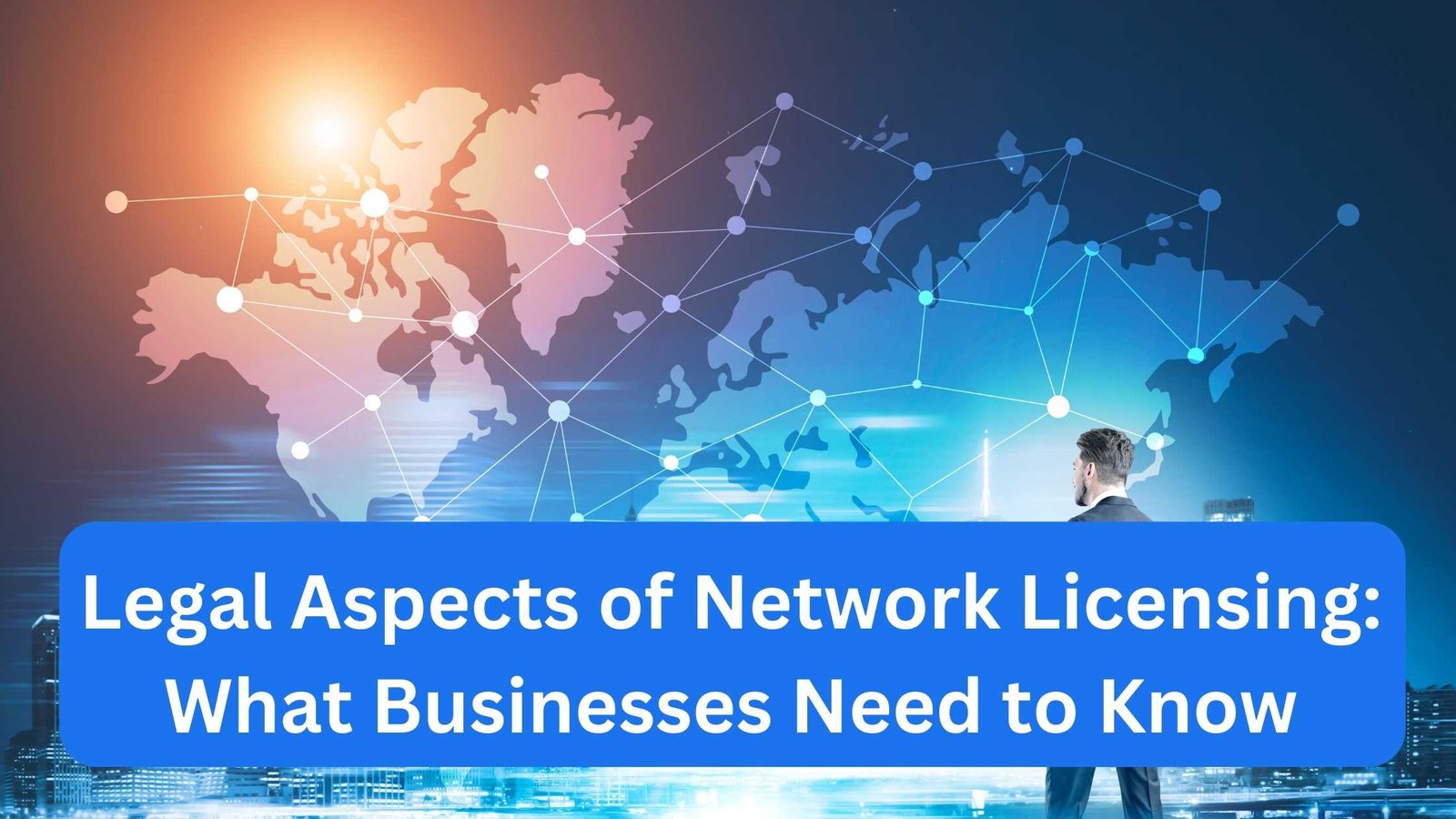In today’s digital world, businesses rely on software and network-based tools to operate efficiently. One key factor that often gets overlooked is network licensing — a legal framework that ensures businesses use software and networks in compliance with regulations. Failing to meet legal requirements can lead to penalties, restrictions, or even operational shutdowns. This article will explore the legal aspects of network licensing and the key things businesses must consider, including SEBI AIF registration, FCC approval, network license services, and how to apply for a WPC import license.
What is Network Licensing?
A network license allows multiple users or devices within an organization to access software or services over a network. Unlike standalone licenses, which are tied to individual users, network licenses are more flexible and cost-effective for businesses with multiple employees using the same software.
However, managing network licenses involves legal compliance, ensuring that businesses do not exceed the permitted number of users or misuse the software. Government authorities and regulatory bodies monitor network licenses to prevent unauthorized usage and ensure fair competition in the market.
Legal Requirements for Network Licensing
1. SEBI AIF Registration and Network Licensing
If your business operates in the financial sector and manages alternative investment funds (AIFs), you must comply with SEBI AIF registration requirements. The Securities and Exchange Board of India (SEBI) regulates financial entities and ensures that network-based financial services follow strict guidelines.
For businesses using network-based financial software, it is crucial to check whether SEBI requires licensing approval for the tools used in fund management, algorithmic trading, or investment analysis.
2. FCC Approval for Network Devices
For businesses operating in the U.S. or dealing with wireless communication devices, FCC Certification approval is a legal requirement. The Federal Communications Commission (FCC) ensures that network-based devices comply with electromagnetic interference standards and do not disrupt communication channels.
If your business is importing or using wireless routers, modems, or other network devices, ensure that they have FCC certification before deploying them in your network. Non-compliance can lead to fines and restrictions on selling or using these products.
3. Obtaining a Network License Service
Businesses often require network license services to ensure legal compliance and proper software usage. These services help companies manage software licenses, renewals, and compliance checks. Some key legal aspects include:
- Understanding End-User License Agreements (EULA)
- Ensuring license limits are not exceeded
- Avoiding unauthorized software distribution
- Keeping track of software expiration and renewal dates
Failing to adhere to network license agreements can lead to legal disputes and financial penalties from software vendors or regulatory authorities.
4. How to Apply for a WPC Import License
If your business imports network-based communication devices into India, you must apply for a WPC import license from the Wireless Planning & Coordination (WPC) Wing under the Department of Telecommunications (DoT). This license ensures that the imported wireless products comply with India’s frequency regulations.
Steps to Apply for a WPC Import License:
- Register on the WPC Portal – Create an account on the Saral Sanchar portal.
- Submit Required Documents – Provide details like product specifications, test reports, and an authorization letter from the manufacturer.
- Apply for ETA (Equipment Type Approval) – If the device operates on unlicensed frequencies, ETA approval is necessary.
- Pay the Prescribed Fees – The licensing fee depends on the product type.
- Await Approval – The WPC authority will review and grant the license if the product meets regulations.
Failure to obtain a WPC import license can result in confiscation of network equipment and legal consequences.
Stay Ahead with Compliance and Expert Support
Navigating the complexities of network licensing requires attention to detail and up-to-date knowledge of regulations. Whether you’re a startup or an established enterprise, ensuring compliance with SEBI, FCC, WPC, and software licensing laws is essential for smooth operations. Partnering with legal and regulatory experts can help you mitigate risks and avoid costly penalties. Always verify that your network licenses align with the latest laws and industry standards. If you’re looking for expert assistance in handling SEBI AIF registration, network licensing, or import approvals, consulting a professional can save time and ensure compliance. Stay informed, stay compliant, and keep your business running seamlessly in the digital landscape.
Conclusion
Understanding the legal aspects of network licensing is crucial for businesses that rely on network-based software and devices. Compliance with SEBI AIF registration for financial services, FCC approval for wireless devices, network license service agreements, and WPC import license requirements ensures smooth business operations and avoids legal risks.
By staying informed and adhering to licensing regulations, businesses can avoid hefty fines, maintain legal compliance, and operate efficiently in a network-driven world. If you’re unsure about your licensing requirements, consult a legal expert or a professional licensing service to guide you through the process.
Need help with SEBI AIF registration, FCC approval, or WPC import licensing? Get expert assistance to ensure your business stays compliant with all regulatory requirements!
Read more: https://techners.net/bis-certification-penalties-and-legal-consequences/












Leave a Reply